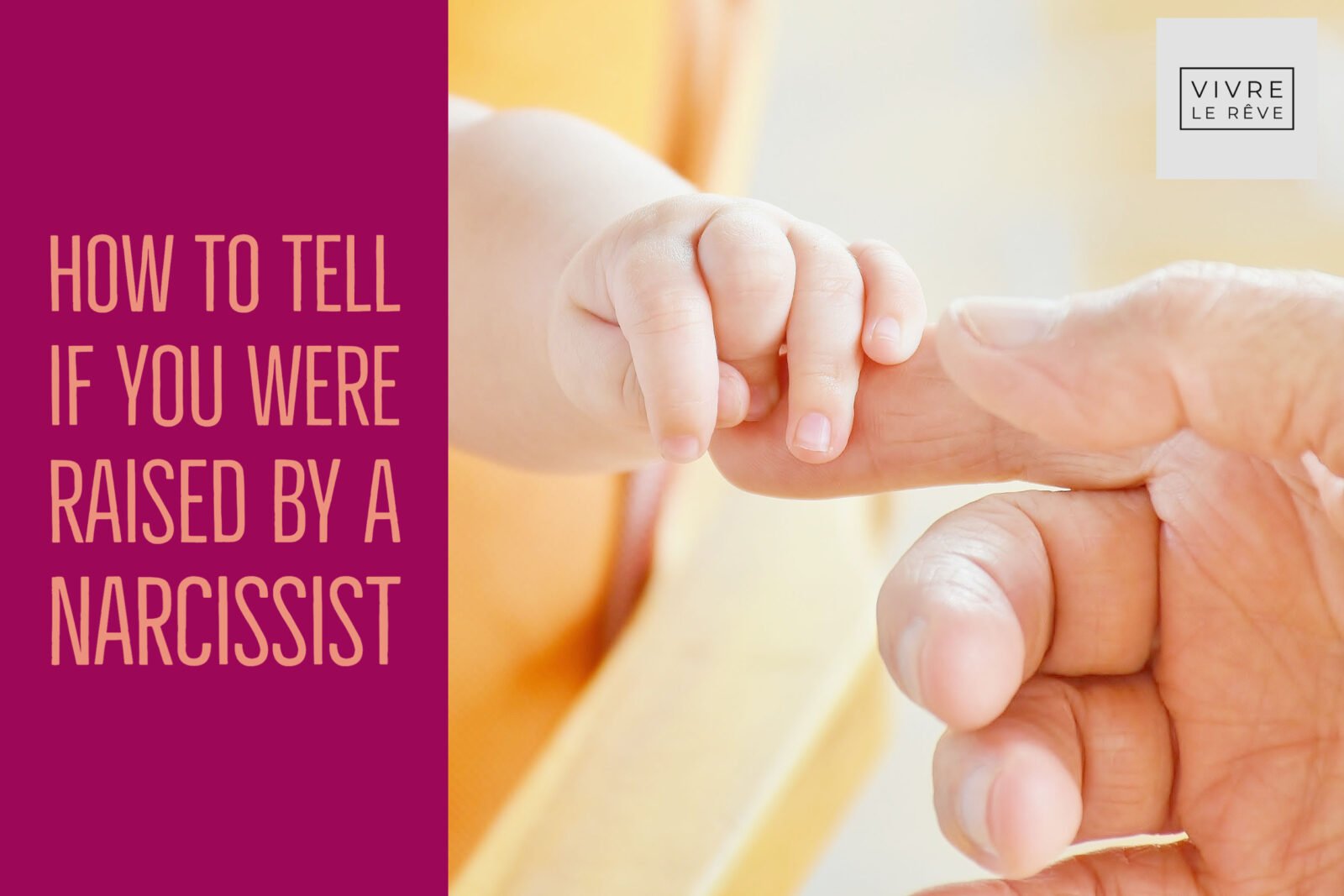How to tell if you were raised by a narcissist? Here’s how to spot the signs of narcissistic traits in your parents, plus how to cope with those psychological effects of having one or more parents with narcissism.
Now narcissism may be one of my favourite (for lack of a better term) mental health topics. What is narcissism? So narcissism is a personality disorder. The official name is narcissistic personality disorder.
It involves a few main criteria:
- An over-inflated overt sense of the self.
- It involves a lack of empathy at times with others.
- Difficulty in relationships.
So there are several things involved in that, here’s what’s most important though. With understanding a narcissist, a narcissist is not who they appear to be on the surface. Think about it like the Gemini star sign; there are two selves. That is who the narcissist is.
There is who the narcissist tries to appear to be on the surface, the image they try to sell to the public and themselves. Then there is their true underlying self. Now, of course, anybody who really loves themselves isn’t going to be so hell-bent on proving to the world how superior they are. What narcissists don’t know is, they’re so much more transparent in some ways than they know.
Narcissists have the false self, which is the self they try to sell to the world, and there’s the authentic self. Which is how they really feel, and deep down, there is an insecurity, a feeling that there’s not enough love and attention to go around. So it’s a bit of a chess game; you must do what you can to make sure you get as much attention as possible.
Now before we talk about the implications of having parents who are narcissists, let’s first talk about what a healthy romantic relationship looks like. A romantic relationship between two adults involves emotional intimacy, now to have emotional intimacy, what do you need? Vulnerability!
You need to be able to say, “I show parts of myself that even I may not like or be comfortable with”. “I admit feelings of weakness, feelings of uncertainty.” “I depend on someone else, and they do the same.” So in a healthy romantic relationship, there’s intimacy; both people are willing to be vulnerable. Neither person ever cares about something called power, who has more power at a given moment.
Parents who are narcissists have children, and many consequences come from the child being raised by two narcissists. They will most likely create an adult who inherently feels like they’re not good enough. Who beats themselves up. Who questions their value and has relationships that are dramatic where people mistreat them.
In 99% of those cases, did that adult when they were young have a parent who unconditionally loved them? Probably not. Because why on earth then would they ever say at 18, 20, 25 years old:
“Hey, I’m going to change the types of relationships I have totally. I’m used to being treated great, being valued, feeling like I count, and now I’m going actually to go into relationships where I’m treated like crap.”
“Where I don’t get called back, where I have to chase them, and I have to wonder if they care about me constantly.”
One of the hallmarks of someone who is raised by a narcissist is the overachiever. Who is telling themselves, if I achieve this, that and the other. Then finally I’ll be good enough.
Is it common for narcissistic parents to raise narcissistic children?
What a lot of the literature says is kind of depressing for children who are raised by narcissists. Which is that if a narcissist raises you, you too may take on some of those narcissistic qualities.
It makes perfect sense when you think about it, right? In a parent relationship, that’s the closest relationship a child has with really anybody. So they are figuring out all kinds of things in that relationship.
It stands to reason then if a parent treats a child disrespectfully, dismissing, unloving, negligent way. Later in life, that person would do the same thing to somebody else in a romantic relationship.
So they might behave narcissistically in a relationship, and they also might seek out somebody who is a narcissist. Think about it this way; that’s what they were told, right? That’s the narcissistic parenting program that they were taught.
What is one thing that can break the cycle raised by a narcissist?
You don’t want to be a narcissist too? Get therapy, and that will help; you’ll gain some self-awareness. It doesn’t need to be just therapy, though; it can be getting educated. Simply going online, doing research into narcissism as a personality disorder and what that means for family members too.
The unfortunate thing for a child who someone like that raises is that because it’s conditional, they understand from the beginning, “Don’t get too cocky, you’re not just gonna be loved; that’s not a part of the deal.” “Now, I will love you if you meet these various stipulations in the contract.”
To the narcissist, image is everything. So when a parent has a child, the child is what we call a narcissistic extension of the parent. So that child fails in school? That child doesn’t live up to the image the parent wants the overall family to represent? The child will be criticised, shut out, dismissed and disowned.
But all isn’t lost, as long as the person raised by a narcissist talks to people they trust and is honest about their feelings because objective people will give them feedback. “Hey, the parenting you got, it was messed up. It wasn’t right.”
See, the child of the narcissist, they don’t have that healthy editor. They were not allowed to be angry; they were not allowed to be resentful or screw up.
Should you confront your parents?
Maybe you’re reading this, and you’ve had the realisation that a narcissist likely raised you, and you’ve decided to educate yourself about it. Should you go back to your parents and address it with them? This question gets to the root of one of the hallmarks of narcissism, which is that narcissism means there will be no self-awareness, no accountability.
You can call them out on things they’ve said or done, but they will never take ownership of it. They cannot allow it.
What’s happening underneath it all psychologically is that the narcissist has fought for so long to build up these strong defences. They can’t let themselves think there’s anything wrong with them. They can’t even let it in; they’re afraid if they acknowledge one minor flaw or one thing they did wrong, that that will open up the floodgates, and then they will be targeted and attacked.
Narcissists are not evil people; they were actually victims too. Someone taught them that in close interpersonal relationships, there is something called power. That does not exist in healthy relationships, but it exists in relationships with people with personality disorders.
Yes, the parent is usually the authority figure, but that’s different from the powerful one. Yes, the person in authority also has the responsibility to protect, set aside their feelings, and acknowledge the differences in their child. All these things are absent in the narcissist, but what people need to remember is just because you have a narcissistic parent doesn’t mean that they are a bad or evil person.
I promise you if you look deeper at the relationship they had with their parents, it wasn’t probably so great either. I want people reading this who think, “Well, maybe I have narcissism?” To know that it doesn’t mean you are a terrible person.
If anything, this is an excellent opportunity to use this information. Go to the next step and get therapy and make some changes to make your life better.
There’s no stigma in a label; it gives us information to take the next proper steps. We are all works in progress.
Yes, it is never too late to change and the most impressive, the happiest, the most influential people in this world. They are people who can say things like “I don’t know” or “Did I mess that up?” A little vulnerability, a little humility gets people quite far in life.
You’ll have much better relationships and much more peace in your relationships if you can give out a little vulnerability and also accept it in others when they show it to you.



























1 Comment